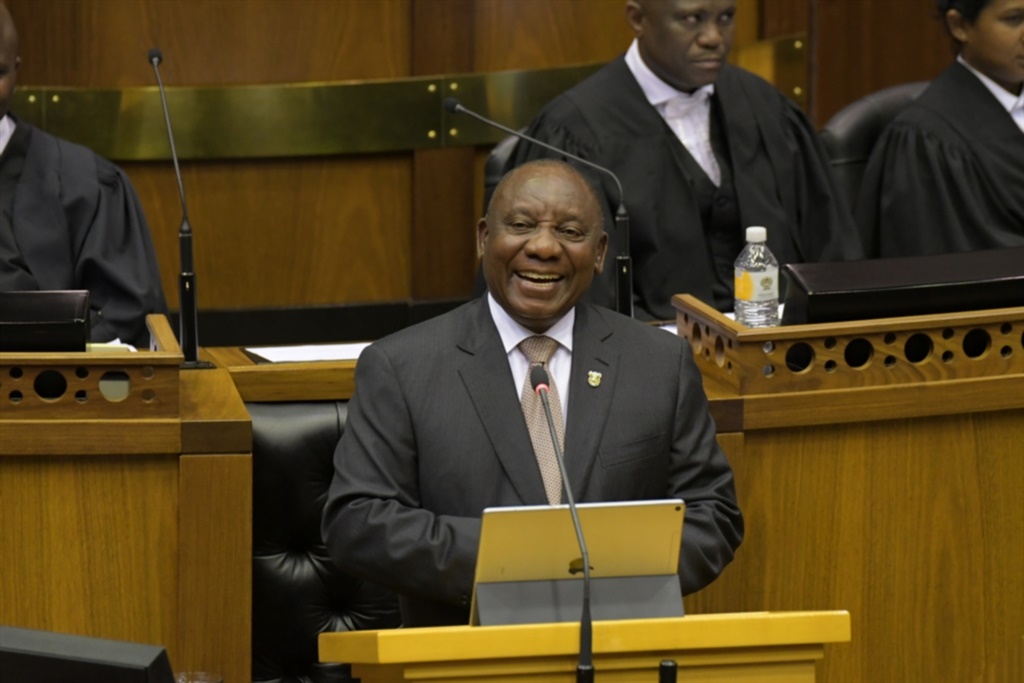
Merging ministries, cutting staff and reducing the number of provinces are part of ‘extreme changes’ mooted to reconfigure the state and drive efficiency
President Cyril Ramaphosa and his government are looking to cut the public service wage bill and, to this end, plan to entice civil servants who want to leave with attractive settlement offers.
A raft of other measures to slash the state’s costs are now on the cards, including:
. Collapsing a number of departments. A powerful economic department is set to be formed by a merger of the departments of small business, trade and industry, tourism and economic development;
. Dramatically cutting the 34-member Cabinet after the elections; and
. Reducing the number of provinces, in line with an ANC resolution taken at the party’s Mangaung conference in the Free State.
Reducing Cabinet
Ramaphosa is set to make good on his promise to reduce the size of Cabinet.
City Press understands that besides the creation of a new economic department, which would be led by two directors-general, other mergers could be on the cards, according to proposals now on the table.
These other departments which could be merged include: agriculture together with land reform; energy and mineral resources; human settlements with cooperative governance and traditional affairs; and rural development with public works.
A senior government official privy to discussions told City Press that while nothing was set in stone yet, these mergers were part of “ongoing discussions and proposals”.
“It is very important to understand that Cabinet is not the state in its entirety. The president is working on a complete overhaul, a reconfiguration of the state,” the insider said.
“Cabinet will be reduced. It will be extreme changes – but that is not all. The matter that was raised in the president’s state of the nation address (Sona) about intelligence [dividing the State Security Agency into two – one focused on domestic security and the other on foreign security] is part of this reconfiguration of the state.”
The new-look Cabinet is also likely to trigger a number of resignations as MPs look to get away with ministerial pensions before being relegated to Parliament’s back benches.
Minister of Public Service and Administration Ayanda Dlodlo told City Press in an interview on Friday that she had not yet presented her advice to Ramaphosa on which departments should stay and which should go.
“What I am responsible for, with regard to my legal obligation in the Public Service Act, is to advise the president on the establishment of departments. Conversely, I [also] have the responsibility to advise him on the collapse or reduction in the number of departments.
“But the work that we are doing on the macro reconfiguration of the state is not yet complete and we have not yet presented to the president,” she said.
“It is much broader than government at a national level in terms of departments, the number of ministers, the number of deputy ministers.
“It is a whole host of things that speak to the machinery of government in general, and how it needs to operate with great efficiency,” Dlodlo said.
Dlodlo added that she wanted to ensure that different government departments worked together and integrated their plans for “greater efficiency and better execution”.
Retirement for civil servants
Dlodlo said circulars had been sent to all government departments, explaining a new mechanism for civil servants who wanted to retire early, but who did not want their retirement packages to be penalised by the tax man.
She said that previously, no such mechanism existed, but it was “now done, and the process will be properly communicated to all departments” to ensure that it is properly monitored and managed.
Reducing the public wage bill – for the state’s approximately 1.2 million civil servants, which cost the fiscus R487 billion in 2018/19, and accounts for 35% of government spending – is one of the best options government has to streamline its operations and contain its costs.
Dlodlo said the public wage bill was the second-largest item in the national budget.
“We have to look at reducing it. There are many ways of dealing with that,” she said.
These include the proper management of “natural attrition” – those lost to the service “through death, resignation and so forth” – and the careful management of their replacements.
The state, she said, could also “bring in new people who, because they have not been around for too long, would be much cheaper than those that we currently have”.
But the state is gearing up for a battle with labour federation and ANC alliance partner Cosatu, which was up in arms last year when it became clear that the public administration department planned to cut state jobs.
Cosatu president Zingiswa Losi reiterated this week that retrenchments were not a solution the federation would accept.
“Because the president had placed a moratorium on retrenchments in the public service, we should now begin with the engagements. We need to ask: Do we really have a bloated public service, and where is it bloated? We need to answer those questions,” Losi said.
“At the Jobs Summit last year, it was identified that we need more nurses, social workers and teachers. So, where exactly is it bloated? Is it bloated in terms of those that are giving service to people on a day-to-day basis, or is it bloated at managerial level?
“We must also say that, as part of avoiding any retrenchments, [it needs to be determined] where you can redirect the skills people have, so that they are not lost. A lot of investment has gone into educating, skilling and reskilling public servants, so you do not want to lose that quality. We need to look at alternatives.”
In his Sona this week, Ramaphosa referred to a technical assistance unit to combat corruption and promote integrity in the public service.
The Ethics, Integrity and Disciplinary Technical Assistance Unit will be established to strengthen the management of ethics and counter corruption, and to ensure consequence management for those who break the rules.
Dlodlo said this was just one mechanism her department was working on to professionalise government.
“We are looking at various ways to put a lid on graft not only in the public service, but generally in the administration. We are looking at operationalising the Public Administration Management Act, which gives us more teeth in dealing with some of these issues,” she said.
“First we developed regulations, and we are now in the process of establishing the office of standards, which will deal with norms and standards for everything across the public administration.
“The second thing we are looking at is establishing a technical assistance unit that will deal with issues of integrity, discipline and issues that relate to how public servants are supposed to behave.”
Reducing provinces
Dlodlo also revealed that the discussion of reducing the number of provinces, as resolved by the ANC at its Mangaung conference, was back on the table.
“For my part, it should happen,” she said.
“We need to also look at local government structures and whether they are fit for purpose. Are the number of provinces helpful in the way that we deliver services? And, is it configured in a way that helps efficiency in the public service?
“I am not saying this is what is going to be done, but there is a resolution of conference and, at some point, we need to confront that,” said Dlodlo.
TALK TO US
Which ministers do you think should go, and which government departments would you like to see merged?
SMS us on 35697 using the keyword CABINET and tell us what you think. Please include your name and province. SMSes cost R1.50. By participating, you agree to receive occasional marketing material




 Publications
Publications
 Partners
Partners








